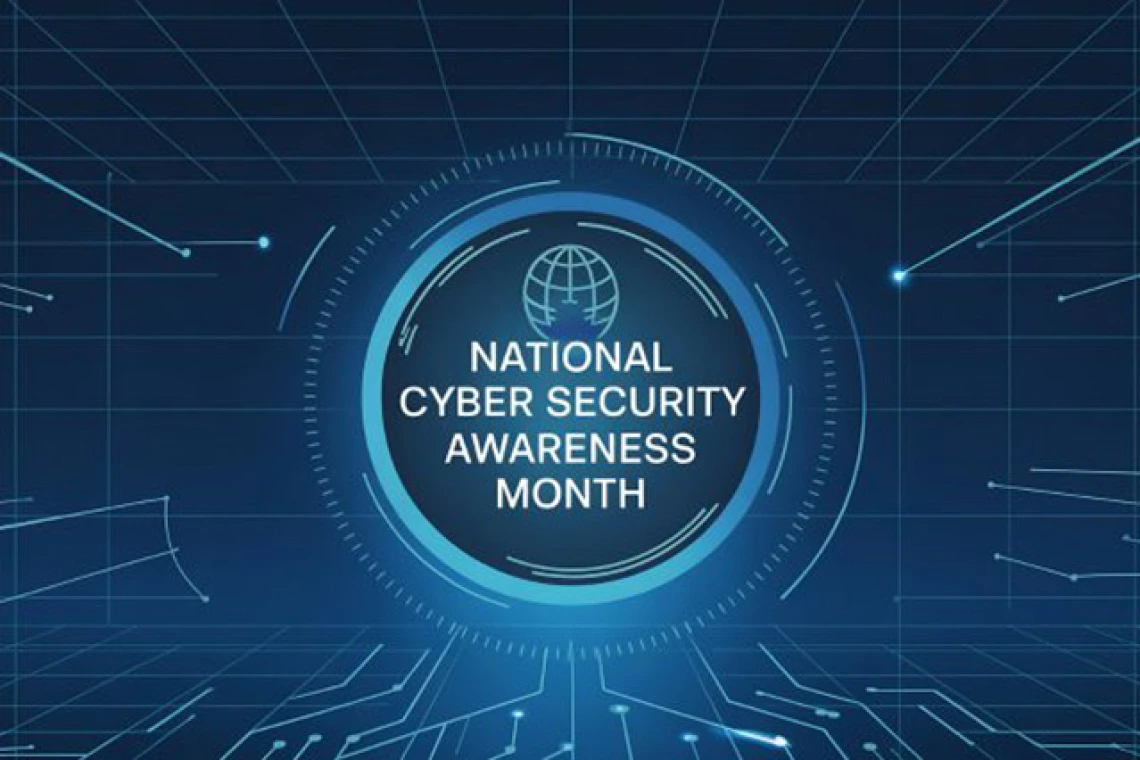Strengthening Our Digital Defenses
Implement the Core 4 of Cybersecurity Awareness Month to protect your information.

October is Cybersecurity Awareness Month (CAM), a nationwide initiative dedicated to promoting safer online habits. At the University of Arizona, the Information Security Office (ISO) has provided a CAM webpage with training, games, and other fun items centered around The Core 4, a simple but powerful framework designed to help Wildcats protect their digital lives.
The campaign emphasizes that cybersecurity isn’t just the responsibility of IT professionals—it’s a shared effort that depends on everyone across campus. Whether you’re logging into UAccess, updating your device, or scanning emails for phishing attempts, practicing The Core 4 helps create a stronger, safer university network.
1. Use Strong Passwords and a Password Manager
The first step to security is locking your digital doors. ISO recommends using strong, unique passwords for every account and managing them with a password manager. Instead of reusing credentials or relying on easy-to-guess words, users are encouraged to create passphrases, a combination of random words that are easier to remember but harder to crack. Password managers simplify the process by storing credentials securely and automatically filling them in when needed.
2. Use Two-Factor Authentication (2FA)
Even the strongest password can be compromised. Two-factor authentication (2FA) adds a critical second layer of defense by requiring additional verification, such as a push notification or a code sent to your phone. At the University of Arizona, Duo 2FA helps safeguard NetID accounts, protecting sensitive data like research files, payroll information, and student records. ISO provides guides on enabling 2FA across university systems and personal accounts to ensure continuous protection.
3. Update Your Software
Regular updates are one of the easiest and most effective ways to block cyber threats. Software patches close vulnerabilities that hackers can exploit, and many attacks target outdated systems. The ISO reminds Wildcats to install updates promptly for operating systems, browsers, and apps alike. Enabling automatic updates can help ensure you never miss critical fixes, keeping devices and data secure.
4. Recognize and Report Scams
Phishing remains one of the most common entry points for cyberattacks. The ISO encourages everyone to stay alert for suspicious emails, links, and attachments, especially messages that create urgency or request personal information. To practice identifying red flags, the university offers an interactive Phishing Quiz, along with examples of real scams reported on campus.
If you receive a suspicious email, check the ISO’s phishing alerts to see if the email has been reported. If it has not, forward the email as an attachment to phish@arizona.edu for review by the ISO team.
Like every other month, the ISO has published its newsletter the ISO Insider. This month’s issue provides tips on the Core 4. Check it out for great information on protecting yourself and your information. While you are there, look at past issues for information on all cybersecurity threats and tips.
By committing to The Core 4, the University community helps protect not only personal data but also the integrity of campus research, operations, and collaborations. Small actions—like turning on 2FA or reporting a suspicious email—make a big difference.
For more information, visit security.arizona.edu/awarenessmonth.

